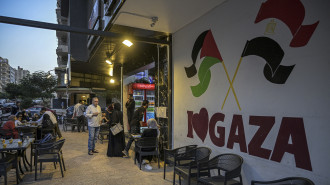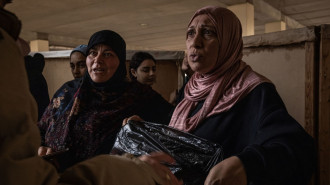How children in Sisi's Egypt are turned into political prisoners
His sister, who witnessed the arrest, said that they'd promised their father he'd be returned in two hours.
But the family waited for 35 days - frantically calling every police station they could for information - while Mohamed sat blindfolded in a secret cell belonging to Egypt's National Security Agency, the rebranded police intelligence service that replaced the infamous State Security Intelligence Services in 2011.
When the teenager's family was eventually informed of his whereabouts and allowed a short visit, "he had white marks on his shoulders and back from electric shocks," his sister Hoda - who requested that the family's real name not be disclosed - said.
"Because he couldn't answer the interrogators' questions, he was hung by his hands, which had been tied together, until his shoulder eventually dislocated." In the icy, concrete room he was thrown into, his one stroke of luck was to find a doctor among his cellmates, who helped him reset it.
Before being charged with acts of terrorism, Mohamed's outdoor activities were confined to his neighborhood school and local sports club. "The first thing he asked me was, 'Where is this hotel they're accusing me of attacking?' He hadn't even heard about the attack, which happened at the same time he was in a private math class," recalls his sister, who learned later that Mohamed's swimming partner was forcibly disappeared days before he was.
 |
Underage political prisoners were rare during the Mubarak era, rights groups say, but have dramatically increased under the Sisi regime |  |
Her brother was among the last people called by this friend, who used to be part of the Ultras, a football fanclub at the frontlines of the 2011 uprising and outlawed since 2015. In the eyes of the National Security Agency, phone interactions can be used as solid evidence of a terror cell to be dismantled.
In total, twelve boys, all of whom were under 18, were arrested and accused of belonging to a banned group, according to a lawyer on their case. After four years on remand detention - two years over the legal limit - Mohamed worked to pass his exams and begin university behind bars, before being handed a 10-year prison sentence.
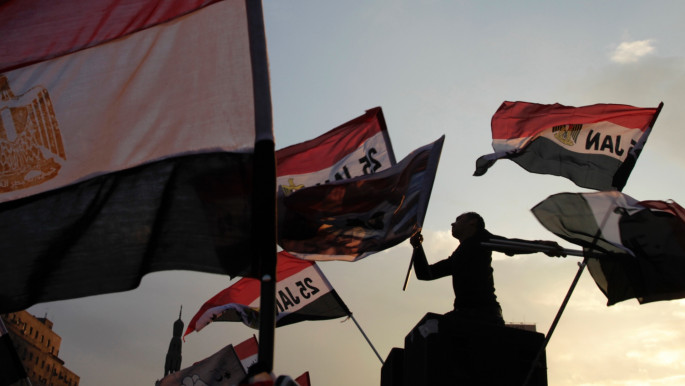 |
|
| Read more: 'We lost to a violent system': A family portrait of Egypt's revolutionary struggle |
Now, his family is only allowed to see him for 10 minutes a month, in a packed room and separated by a metal barrier. This last measure is said to be in response to the Covid-19 pandemic, although detainees are often denied access to hygiene products, according to a 2021 Amnesty International report.
With real conversation barely possible, these visits become a rare opportunity for families to assess their loved ones' wellbeing. But for thousands of families whose loved ones have been disappeared, these difficult prison interactions sound like a privilege.
Om Ibrahim has not heard from her 14-year-old son in over three years. She was arrested on 26 July, 2018, along with her son, Ibrahim, and her husband, in North Sinai, where the Egyptian military has launched a "comprehensive" operation against the Islamic State local affiliate, Wilayat Sinai. Less than two months later, in the local paper, she read that her husband was among a group of "terrorists killed by the army." She was released after five days of questioning and psychological torture.
"They wanted to know where one of my brother's, who joined Da'esh [The Islamic State] was, but I had no news from him - he was even said to have died," explains Om Ibrahim. "They said my son was being tortured because I wasn't cooperating." As a widow with Palestinian nationality, her pension has been denied by the Egyptian state, and despite scouring detention centers to find her son, she has only reached dead ends.
"I'd just like to bring him clothes and books, but I don't even know if he's alive - nobody will give me an answer," says Om Ibrahim, who survives off of irregular work as a tailor. "They've destroyed me."
 |
Since the 2013 coup, civil society groups have documented over 1,400 arbitrary arrests of minors |  |
Hundreds of children arrested since 2013
Underage political prisoners were rare during the Mubarak era, rights organisations say, but have dramatically increased under the Sisi regime. The Nadeem Center for Rehabilitation of Victims of Violence has noticed a surge of minor patients from 2016 onward.
"They show several symptoms of post-traumatic stress, like hallucinations and flashbacks of their abuse," states doctor Suzanne Fayyad, one of the centre's co-founders. "But what's different about child victims is that their personality is disrupted at the very moment it is being built. They lose the desire to learn. They look like doused-out candles."
A 43-page Human Rights Watch report documents the horrific range of abuses inflicted by Egyptian security officials in 2020 on 20 child detainees who ranged from 12 to 17 years old, including waterboarding, electrocution, aggressive beating and torture with sharp nails. In 2019, three years after his arrest, the Middle East Monitor reported that Wael Mahmoud Ali el-Sibai, 19, had died from the severity of torture inflicted on him.
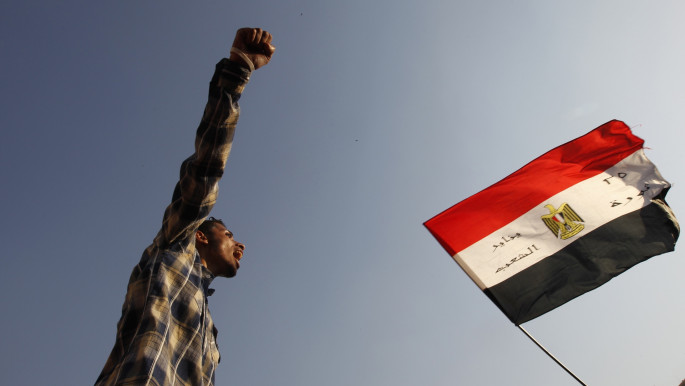 |
|
| Read more: Ten years on, did Egypt's January 25 revolution fail? |
Egyptian authorities have repeatedly labelled reports by rights watchdogs as a "politicized smear campaign" and denied any violations against children. They also rejected European Parliament calls to respect human rights and fundamental freedoms as "an essential element of EU-Egypt relations" in 2018 and 2020. On 11 January, 2021, Minister of Foreign Affairs Sameh Shoukry stated that nobody imprisoned in Egypt had been detained for expressing their opinion and that Egypt was "working hard to fulfil its constitutional human rights obligations."
Since the 2013 coup that overthrew Egypt's first democratically elected president, Mohamed Morsi, the Beladi NGO has documented 1,400 arbitrary arrests of minors. "They're tried as adults, with the same charges typically used in politically motivated cases: association with an illegal group, spreading false news, attempting to overthrow the state," says Aya Hijazi, who founded the organisation to defend children's rights.
The human rights activist - who herself was imprisoned for three years until US administration pressure led to her pardon - was later forced to move its headquarters abroad. She feels "alone in this fight," unable to monitor the full scale of abuses.
 |
Rights groups have documented a range of horrific abuses inflicted by Egyptian security officials on child prisoners, including waterboarding, electrocution, aggressive beating and torture with sharp nails |  |
Unlawful death penalty
During the first half of 2020, 93 children were arrested in Egypt. All them were subject to violations, and 18 of them are still in jail, according to the Committee for Justice (CFJ). "Some of them are arrested to force their parents to go into custody, or as a reprisal against a family member who's critical of the regime abroad," explains Ahmed Mefreh, head of the CFJ. "There are no red lines; women, old people and kids are not spared anymore."
In theory, Egyptian law forbids the death penalty for defendants who are minors at the time of the alleged crime. But in reality, there are five detainees arrested between their 16th and 17th birthdays who are currently on death row, according to British organisation Reprieve.
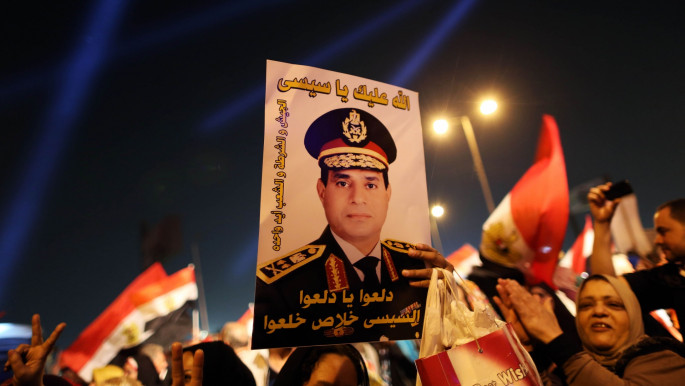 |
|
| Read more: Biden and Sisi: A favourite dictator no more? |
Seventeen-year-old karate champion Ahmed Saddouma was among them, before international pressure driven by his family and lawyers succeeded in reducing his and his 19-year-old brother's sentences to 15 years imprisonment - a crucial step, but far from justice. The young athlete had been tortured to confess to planting a bomb in an attack that took place while he was in prison.
Saddouma's parents remain committed to supporting their sons, who have managed to begin college while in prison. But many minors have been dragged into darker situations.
"After being in a cell filled with jihadis and extremists, a pro-2011 teenager, who used to be critical of the Muslim Brotherhood, has stopped all family visits and legal counselling, refusing any link to the system, which he now says should be only overturned by force," says a human rights lawyer who asked not to be named. "This is how the state produces new terrorists."

![Palestinians mourned the victims of an Israeli strike on Deir al-Balah [Getty]](/sites/default/files/styles/image_684x385/public/2024-11/GettyImages-2182362043.jpg?h=199d8c1f&itok=xSHZFbmc)


![The law could be enforced against teachers without prior notice [Getty]](/sites/default/files/styles/image_684x385/public/2178740715.jpeg?h=a5f2f23a&itok=hnqrCS4x)
 Follow the Middle East's top stories in English at The New Arab on Google News
Follow the Middle East's top stories in English at The New Arab on Google News
